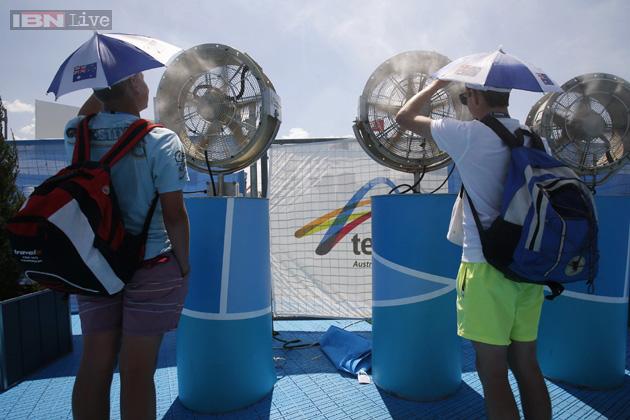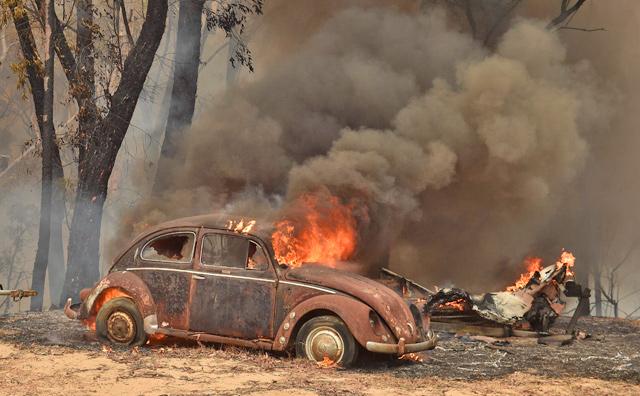You are here
Australia to get hotter and bushfire season longer — study
By AFP - Mar 04,2014 - Last updated at Mar 04,2014

SYDNEY – Australia will suffer more days of extreme heat and a longer bushfire season as greenhouse gases force temperatures to continue rising, a new report warned Tuesday.
The joint study by the Commonwealth Scientific and Industrial Research Organisation and the Bureau of Meteorology said temperatures across Australia were, on average, almost one degree Celsius (1.8 degrees Fahrenheit) warmer than a century ago.
Seven of the 10 warmest years on record have occurred since 1998 while over the past 15 years the frequency of very hot months has increased five-fold, it said.
The scenario was starkly illustrated in 2013, which was Australia’s hottest year since records began in 1910 and included a prolonged national heatwave.
Megan Clark, chief executive of the CSIRO, Australia’s peak science body, said the country has warmed in every state and territory and in every season.
“Australia has one of the most variable climates in the world. Against this backdrop, across the decades, we’re continuing to see increasing temperatures, warmer oceans, changes to when and where rain falls and higher sea levels,” Clark said.
“The sea-surface temperatures have warmed by 0.9oC since 1900 and greenhouse gas concentrations continue to rise.”
Australia is routinely hit by bushfires during its December-February summer months, with hot windy conditions again fanning hundreds of blazes this season with dozens of homes destroyed.
The report said it would only get worse.
“A further increase in the number of extreme fire-weather days is expected in southern and eastern Australia, with a longer fire season in these regions,” it said of areas devastated by fires this year.
It also forecast less rainfall in southern Australia and more severe droughts in a grim warning for farmers.
The report, released every two years, added that tropical cyclones were projected to decrease in number but increase in intensity, while rising seas levels would cause more problems for coastal dwellers.
The report said Australian temperatures could rise by 1oC-2.5oC by 2070, compared to 1980 to 1999, depending on the level of greenhouse gas emissions.
While cutting global emissions would be crucial to preventing the worst global warming has in store, that alone would not be enough, the agencies warned.
“Adaptation is required because some warming and associated changes are unavoidable,” it said.
Related Articles
BUXTON, Australia — A state of emergency was declared in Australia's most populated region on Thursday as an unprecedented heatwave fanned o
MELBOURNE — Around 100,000 people were urged to flee five Melbourne suburbs on Monday evening as Australia’s spiralling bushfire crisis kill
Stronger winds which have cooled the surface of the Pacific Ocean could explain what is likely to be a temporary slowdown in the pace of global warming this century, researchers said.

















